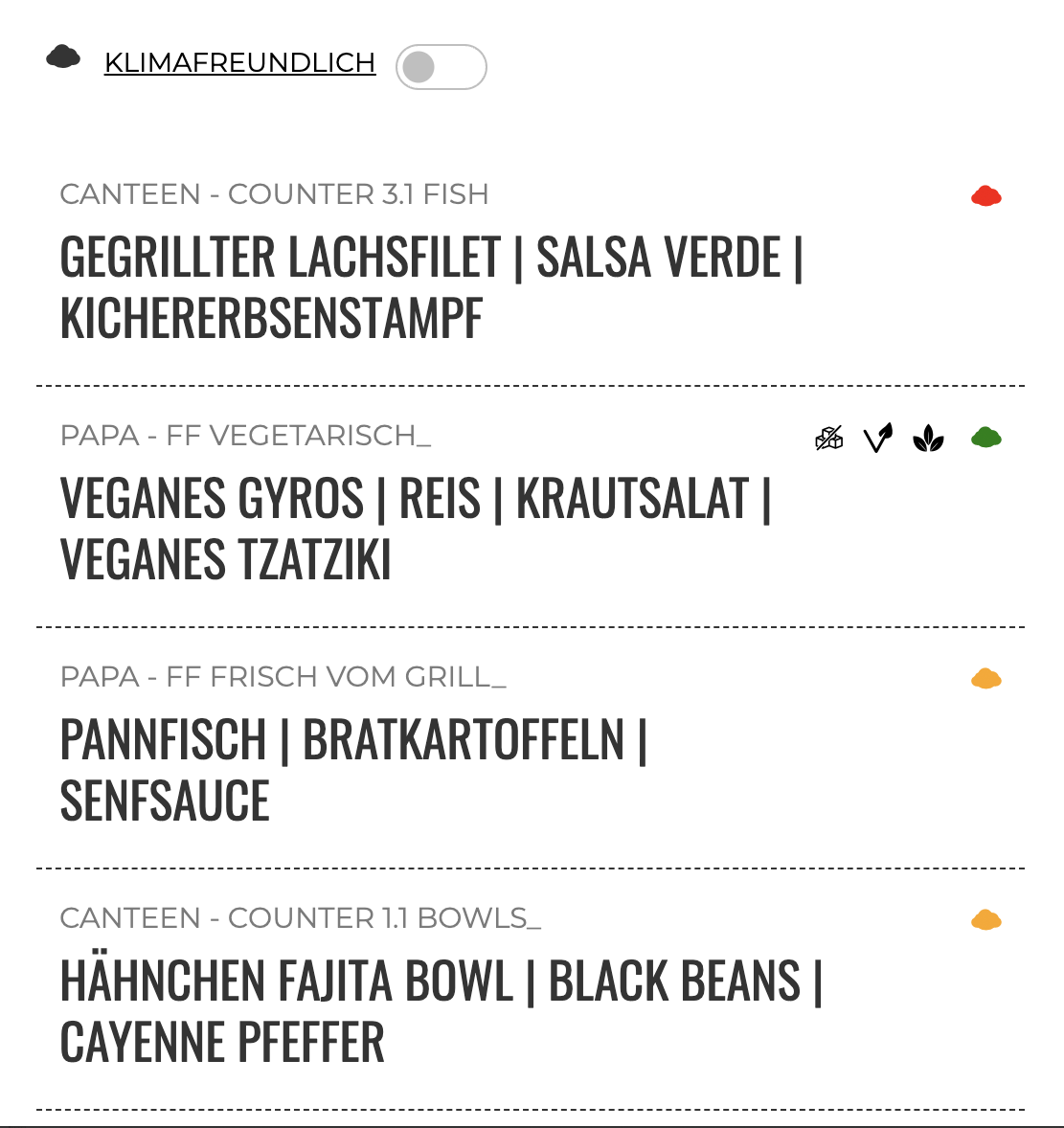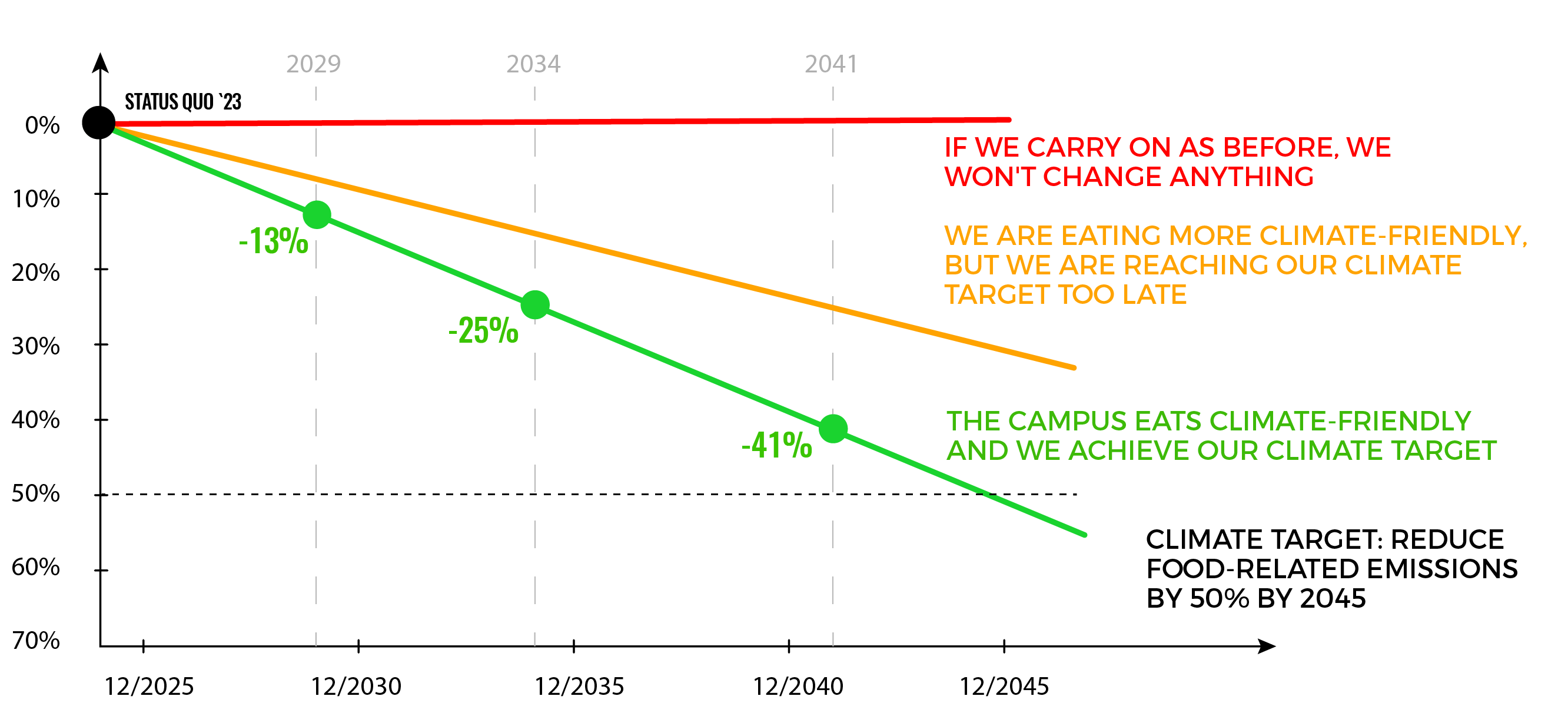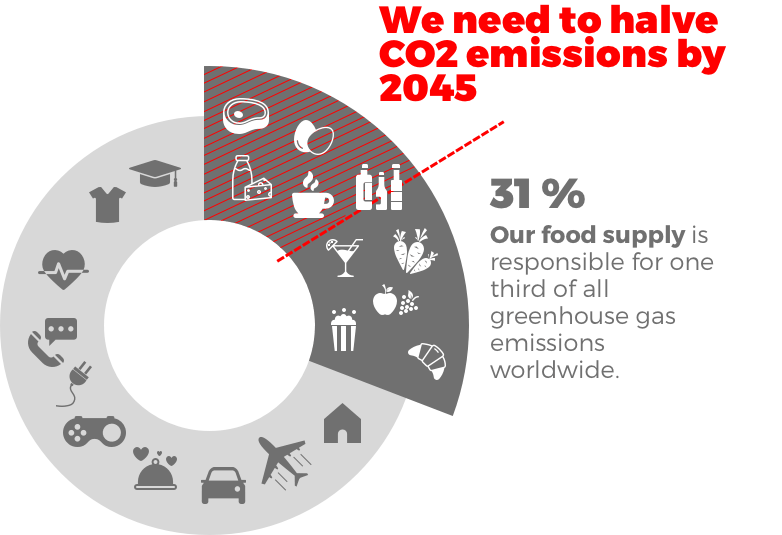The clouds should give you a feeling for how climate-friendly a dish is!

You would have to eat “green” more often and we would have to offer less “orange” and “red”. TOGETHER FOR MORE CLIMATE PROTECTION
Our nutrition is responsible for a third of consumption-related greenhouse gas emissions in Europe.

Our goal at PACE is to reduce food-related emissions by at least 50%.

We all want to raise awareness of this issue. From now on, you can reduce your foodprint by choosing a Green Cloud dish.
On the other hand, we will also work on optimizing our menu planning and preparation to make it more climate-friendly.

By making informed, seasonal and regional food choices, we can reduce our negative impact on the climate by more than 50 %.
Explanation of the valuation
 less than 1,947g CO2/DFU
less than 1,947g CO2/DFUat least 50% better than the average
 less than 3,894g CO2/DFU
less than 3,894g CO2/DFUbetter than the average
 more than 3,894g CO2/DFU
more than 3,894g CO2/DFUworse than the average
What does DFU mean?
We consider the following nutrients according to their recommended daily amount:
g protein/ 50 g
g fat/ 66 g
kJ (the rest) / 6000 kJ
g water / 2500 g
g (weight – “minus” water) / 600 g
and the sum of all divided by 5
Example: 100 g whole grain cereals contain 10 g protein, 7 g fat, 1434 kJ, 16 g water – 84 g dry weight. The DFU is also: (10/50 + 7/66 + (1434 – 17 x 10 – 37 x 7)/6000 + 16/2500 + 84/600) / 5 = 0.124
With a CO₂ value of 85g CO₂ / 100g, we now have 685g CO₂/DFU.
What is a kilo of CO2?
1/2 liter of gasoline causes 1 kg of CO2 emissions when burned. An oak tree binds approx. 20 kg of CO2 per year as it grows. If a person eats a climate-friendly meal three times a week, they save as much CO2 per year as 10 oak trees absorb from the air in the same year.
What can I change? Doesn’t help anyway
Many say: “What I do makes no difference as long as China and the USA don’t do anything!”
China, the USA and India are responsible for around 50% of global CO2 emissions. All countries that emit as much CO2 as Germany make up the other 50%. So if everyone says “no point”, half of global CO2 emissions would remain unchanged.
As a large economy, Germany has contributed almost 5% to global warming since industrialization. As the strongest economy in Europe and one of the strongest economies in the world, Germany therefore has a responsibility.
Info from Quarks




